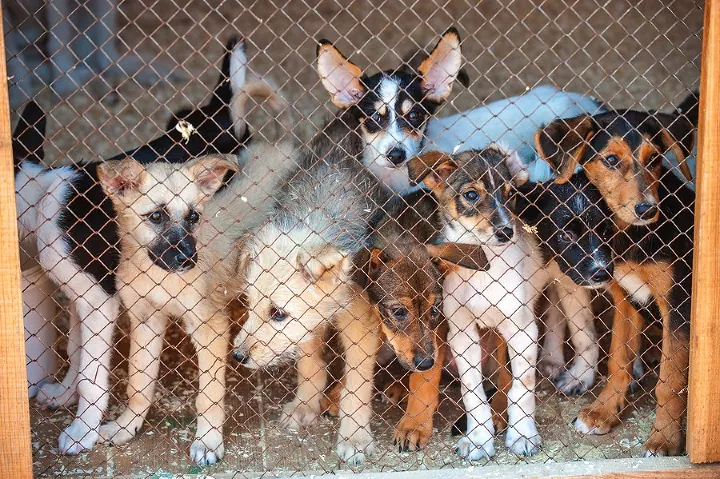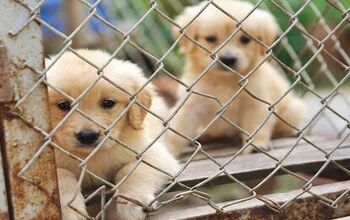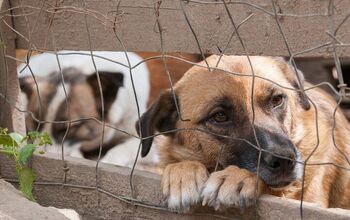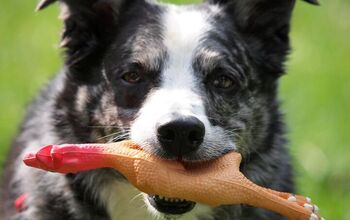10 Signs Your Dog is From a Puppy Mill

Whether you are a current dog owner or not, you have probably heard the phrase “puppy mill” tossed around but you may not know what it actually means. Puppy mills are deplorable and the puppies they produce are often malnourished, riddled with health problems, and likely to die young. You should avoid buying puppy mill puppies not only for these reasons but also because it means that you won’t be supporting these operations.
What are Puppy Mills and Why Are They Bad?
A puppy mill is simply a large-scale dog breeding facility. What sets a puppy mill apart from a reputable breeding program is the fact that profit is given priority over the health and well-being of the dogs. Many puppy mill breeders are forced to whelp litter after litter of puppies with little rest in between and without proper veterinary care and nutritional support. Puppy mill breeders often suffer from malnutrition and a number of health problems which puts their puppies at risk for these same problems.
Related: What Is A Puppy Mill?
The conditions in a puppy mill are usually overcrowded and unsanitary. The dogs used for breeding do not receive proper veterinary care and they certainly do not undergo any kind of genetic testing to rule out hereditary conditions. The puppies produced in puppy mills are often sold directly to pet stores or over the internet as soon as they are weaned and many of them are already suffering from serious health problems by the time they are sold. Due to these health problems, many puppy mill puppies die young or develop serious problems within the first year of life.
Related: Help The Puppy Mill Project Shut Down The Puppy Production Line
How to Identify a Puppy Mill Puppy
As horrible as puppy mills are, the ASPCA estimates that there are still more than 10,000 of them in the United States alone. If you want to make sure that your next puppy isn’t coming from a puppy mill, keep an eye out for the following ten signs:
- The puppies come from out-of-state – particular Midwestern states like Missouri and Illinois.
- The puppy’s parents are not kept in the same facility and you cannot see them before buying.
- The breeder wants to meet somewhere else if you request a visit to their facility.
- The facility offers several different breeds – reputable breeders focus on one or two breeds.
- The breeder has multiple litters available at the same time.
- Neither the parents nor the puppies have been vaccinated properly.
- The breeder makes extreme promises about the puppy’s size, temperament or another quality.
- The puppies may smell like a kennel and they are likely to have poor coat quality.
- The breeder doesn’t ask you to fill out any kind of contract or spay/neuter agreement.
- The puppy is under 8 weeks of age or appears to be much younger than the breeder claims.
Unfortunately, if something on this list is true about the puppy you are thinking about buying, a puppy mill breeder is unlikely to be honest about it. For example, a puppy mill breeder might be able to offer you papers and a license for your puppy but if you look more closely you may be able to tell that it is fake. If at any point the breeder doesn’t appear to be forthcoming about information regarding the puppy, its parents, or the breeding facilities it is a big red flag. Not only should you avoid buying from this breeder but you should also report him to the ASPCA or the Humane Society.
Buying a puppy from a pet store is a big risk for a number of reasons. For one thing, many of the puppies sold in pet stores come from puppy mills and it is very easy to fake the papers or registration that pet store owners use to convince you that it is not so. If you really want a puppy, consider adopting from a shelter or go through a reputable breeder.

Kate Barrington is the loving owner of two cats (Bagel and Munchkin) and a noisy herd of guinea pigs. Having grown up with golden retrievers, Kate has a great deal of experience with dogs but labels herself a lover of all pets. Having received a Bachelor's degree in English, Kate has combined her love for pets and her passion for writing to create her own freelance writing business, specializing in the pet niche.
More by Kate Barrington























